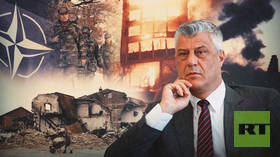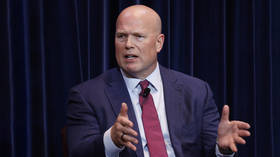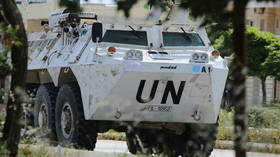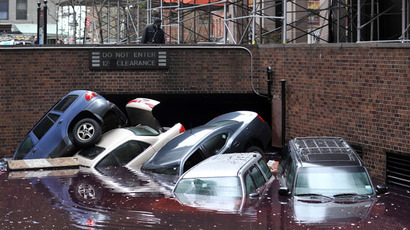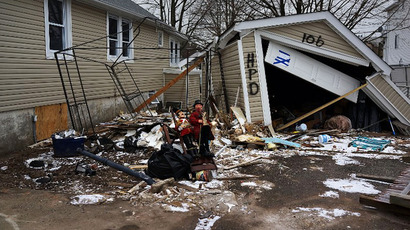FEMA refuses Hurricane Sandy aid to elderly US Army veteran
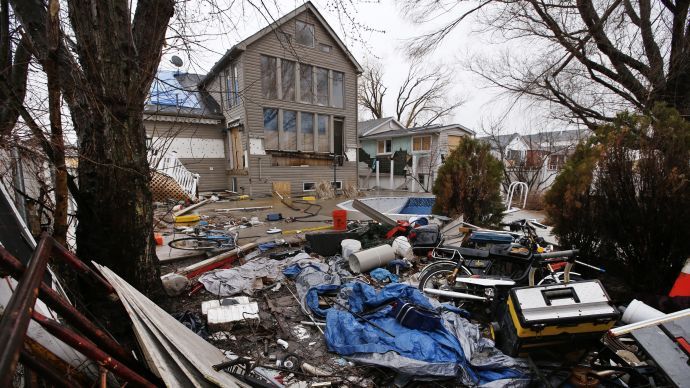
As New York City continues to rebuild and reimburse those residents displaced by Hurricane Sandy at least one man, a US Army veteran, was refused help because of a strict federal law that prevents someone from collecting aid on their property.
Vito Colucci Sr., a Staten Island resident who served in the
Korean War, was living with his son’s family in New Jersey when
Hurricane Sandy hit at the end of October. Colucci was diagnosed
with dementia two years ago and submitted an application to the
Federal Emergency Management Agency (FEMA) three days after the
storm ravaged his Staten Island home, according to the New York
Daily News.
Colucci owns the damaged home, but FEMA rejected his application
because Colucci had taken residence with his son.
“They said because my father didn’t live there, owner or not,
it doesn’t matter. It’s a second home so he doesn’t qualify for
aid,” Colucci Jr. said, adding that his father frequently has
trouble remembering the names of people he has known for decades.
“I said, ‘The guy is sick. He hasn’t got a second home.’ It’s
not like you’re talking to somebody that has a ton of money.”
Colucci Jr., a veteran himself, of the Vietnam War, told the
Daily News that while neighbors were receiving large checks, his
family could only complete basic clean-up of his father’s home.
He said one FEMA worker questioned why Colucci admitted his
father was staying with him in the first place.
“I was trying to tell the truth, and look what happened,”
he went on. “I’m a loyal American and when they needed me to
step up, I joined the service. Now we’re penalized for not
playing the game.”
FEMA spokesman Ray Perez told the Daily News the Coluccis' case was “a really tough one.”
FEMA has helped many Sandy victims in the months since the storm
hit New York City and the New Jersey coastline, even putting some
newly homeless in hotels. But a seeming lack of foresight in how
to spend recovery dollars, along with mismanagement accusations,
has frustrated city dwellers and New Jerseyans alike.
The American Red Cross, a separate entity from FEMA but one with similar goals, admitted it did not distribute more than one-third of the funds collected in the storm’s aftermath. Americans donated $303 million to the Red Cross to help Sandy victims, the most collected by any organization, but more than $110 million has not been dispersed.
“People were cold. Homes mildewed. There wasn’t enough decent
housing,” Kathleen McCarthy, the director for the Center for
the Study of Philanthropy and Civil Society at the City
University of New York, told the Associated Press. “Given the
lingering despair, it’s hard to understand the argument that ‘We
are setting that money aside.’”





